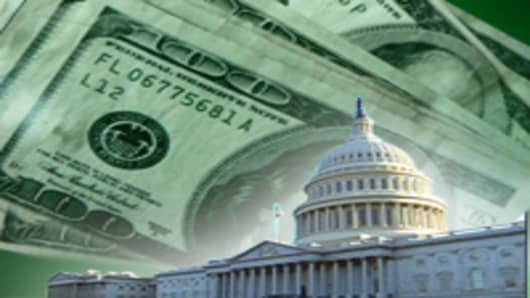Congress could have passed a more sweeping jobs bill with larger bipartisan support if Democrats had been more willing to work with Republicans, Sen. Charles Grassley told CNBC.
"Five Republicans and 57 Democrats does not make a bipartisan bill," Grassley said.
Grassley was reacting to a jobs bill that cleared a GOP filibuster on Monday with the help of some moderate Republicans, including the Senate's newest Republican, Scott Brown of Massachusetts.
The 62-30 tally to advance the measure to a final vote on Wednesday gives both President Obama and Capitol Hill Democrats a much-needed victory—even though the measure is likely to have only a modest boost on hiring.
Instead of creating a bipartisan atmosphere, the jobs bill is likely to create a further split between the two parties, Grassley said. The Iowa Republican targeted Sen. Harry Reid (D-Nev.) for deciding on a go-it-alone strategy.
"All of a sudden Sen. Reid decides to dump (Democratic) Sen. (Max) Baucus and the bipartisan agreement...and decides to go in a partisan way," Grassley said. "People back in Iowa and all over this country are tired of this partisanship, but that's the route he decided to go."
Republicans and some Democrats were unhappy that Reid abruptly dumped about $70 billion worth of tax breaks for businesses and individuals, help for the unemployed and additional Medicare payments to doctors from a compromise measure unveiled by Grassley, the chairman and ranking Republican on the Senate Finance Committee, and Baucus.
The larger Finance panel bill included about $33 billion in popular tax breaks, including an income tax deduction for sales and property taxes and a business tax credit for research and development, that would be extended through 2010. Those ideas have sweeping support among lawmakers and have been routinely renewed for years.
But five Republicans, including Brown, crossed party lines to give Reid a filibuster-proof majority for his bill.
Reid's bill is far smaller than President Obama's $862 billion economic stimulus bill last year and smaller than the Grassley-Baucus proposal.
Still, Grassley charged that the legislation put more of the burden of job creation on the government, when in fact it should be targeted toward helping the private sector create jobs.
"Maybe it's the left wing of the other party believes in government more than they do in the private sector," he said.
—The Associated Press contributed to this report.


